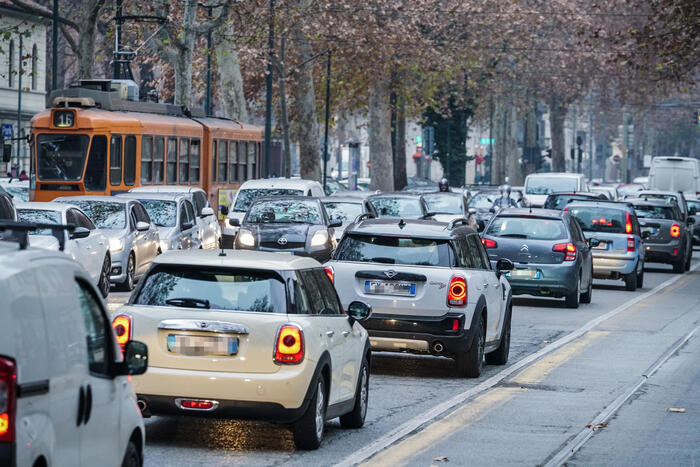The man who negotiated the final stretch of Brexit with the EU on behalf of Boris Johnson, David Frost, warned this week in the upper house of the British Parliament that London and Brussels have not yet reached the "gin and tonic moment."
“We all know that when taking off, turbulence increases.
Only when you reach a cruising altitude can you remove your seat belt, and enjoy a gin and tonic and some peanuts.
We are not there yet, but I am confident that we will get to that point, ”Frost explained to the Lords who are part of the parliamentary committee for the European Union.
Frost accompanied his boss, Michael Gove, the minister who has the highest responsibility in Downing Street in everything that concerns the new stage, with the definitive departure of the United Kingdom from the community institutions.
Gove will meet this Thursday in London with the Vice President of the European Commission Maros Sefcovic to try again to reduce the growing tension in Northern Ireland.
They both chair the joint Withdrawal Agreement oversight committee.
Although it was immediately annulled, the hasty decision of the EU to invoke a security mechanism of the Irish protocol to control the exports of vaccines from the republic (Community territory) to the Northern Irish area of the island (British territory) provoked the ire of all the political parties, especially the DUP unionists.
It was the spigot through which the tension accumulated over weeks of customs and health controls that did not exist before Brexit came to light.
Threatening graffiti against Northern Irish and EU workers who carried out livestock and phytosanitary controls on exports appeared around the ports of Belfast and Larne.
The autonomous government and the EU temporarily withdrew their employees, for security reasons, although they returned to their posts earlier this week.
The damage, in any case, was already done.
The Northern Irish Chief Minister and Unionist leader, Arlene Foster, lashed out in harsh terms against a protocol that her formation never liked and for which they felt betrayed by Downing Street.
The price Johnson had to pay to reach his long-awaited Brexit deal at the end of 2019 was to let Northern Ireland remain within the EU's customs space and internal market.
There would be no border between the two areas of the island, to prevent outbreaks of violence like those experienced for decades.
In return, the new border between the United Kingdom and the European Union would be established in the Irish Sea.
But the necessary physical checks would be carried out on the ground.
And it is those facilities that have suffered the threats and the boycott.
They have not been the work of former paramilitary forces, the Northern Irish police have assured, but they have been enough to provoke nerves in London, Brussels, Belfast and Dublin.
Downing Street took advantage of the latent tension.
Gove wrote a tough letter last week to his counterpart Sefcovic, demanding greater flexibility and a truce period for certain business transactions, such as frozen meat, parcel services and medicines.
"I expected a firm response, but the reaction has been much more negative than expected," he said in the text.
"There has been a sense of shock and anger among all political parties, civil society and business organizations in Northern Ireland."
Gove asked Brussels for more waist, while Johnson reserved the gesture of authority.
"We will do everything we need to do, either with new laws or even by invoking article 16 of the protocol, to avoid the existence of barriers in the Irish Sea," said the prime minister this Wednesday in the House of Commons.
The British Government is not going as far as the unionists of the DUP, who demand the annulment of the protocol, but it has taken advantage of the turbulent climate to demand a complete review of the agreement, which includes an extension of the grace period until June 2023. Very far from what Brussels, and the Dublin government itself, are willing to contemplate.
In an attempt to save a situation that could end up derailing, Sefcovic agreed to put his signature next to that of Gove in a joint statement in which he promised to continue discussing “the appropriate development of the protocol to protect the profits of the peace process [in Northern Ireland], maintain stability in the area and avoid any disruption to the daily life of the inhabitants or a hard border on the island of Ireland ”.
“The protocol is not working right now, but we can make it work. It is not necessary to liquidate it to solve these problems, ”Gove assured the Lords in his appearance on Monday. London and Brussels will have to find a complex solution that calms the nerves of the unionists, respects an agreement that took years of negotiation and did not solve the other side of the conflict: the Northern Irish Republicans of Sinn Féin. The idea of keeping the border open with the rest of Ireland while increasing obstacles to trade with the United Kingdom plays in the long run in favor of their political aspirations for reunification.

/cloudfront-eu-central-1.images.arcpublishing.com/prisa/XO3TIUFTPAKMJSHXEAQRMWNHBM.jpg)







